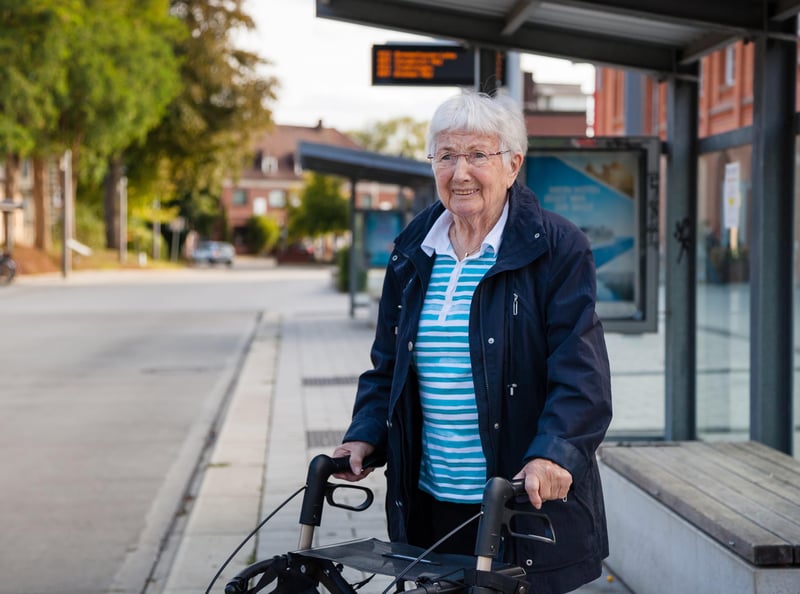Get Healthy!

- Posted October 27, 2022
Many Urban Seniors Rely on 'Broken' City Transit to Get to Medical Appointments
More than 700,000 older Americans rely on public transportation to get to and from their medical appointments.
That's roughly 1 in 10 seniors who live in cities.
But when individuals were frail, or used a wheelchair, or sidewalks along their route were damaged, they were less likely to take the subway or bus, pointing to a need for improvement, according to a new study.
"While our data was collected before the COVID pandemic, we know the pandemic disrupted public transportation, which is still continuing due to financial strain, staffing shortages and cutbacks to transit services across the county," said senior author Jason Falvey, an assistant professor of physical and rehabilitation science at the University of Maryland School of Medicine.
"We worry about the impact that this disruption is having on the nearly 700,000 older Americans who rely on subways and buses to get to their medical appointments," he said in a school news release.
Falvey and his team analyzed data from the National Aging and Trends Study, which included a survey of Medicare beneficiaries ages 65 and up.
The study focused on those living independently in urban areas. Participants were asked about their use of public transportation during the previous month.
Black and Hispanic respondents, as well as those who were financially strained, were more likely to use public transit, the survey showed.
Those who used wheelchairs were 65% less likely to rely on these public options. Researchers noted that broken sidewalks and malfunctioning elevators at stations may also impede transit use.
"Disruptions to public transportation may widen health care disparities for Black and Hispanic older adults who are more likely to rely on these services," said Dr. Mark Gladwin, vice president for medical affairs at the University of Maryland.
"We have an imperative to invest in transportation infrastructure because it is a vital public health need for our most vulnerable populations in Baltimore and beyond," Gladwin said in the release.
Wait times for mass transit are often up to 25 minutes, the study noted. Standing that long in extreme heat, rain or cold conditions could worsen chronic conditions like heart failure, kidney disease or diabetes.
The researchers plan a pilot study next year in West Baltimore to see if some steps can improve access to public transit for seniors with disabilities.
These steps would include providing mobility-related equipment to help people navigate uneven sidewalks. It would also include free passes that would allow them to travel with a caregiver to and from medical appointments without added costs.
"Our current study found that transit users were more likely to go to their doctor visits alone compared to those who did not use public transportation, likely because of financial constraints," Falvey said. "Having a loved one at these visits can be a vital part of successful management of chronic health conditions common in seniors."
The U.S. National Institute on Aging provided funding for the study, which was recently published in the Journal of the American Geriatrics Society.
More information
The U.S. Department of Transportation has more on public transit.
SOURCE: University of Maryland School of Medicine, news release, Oct. 24, 2022
